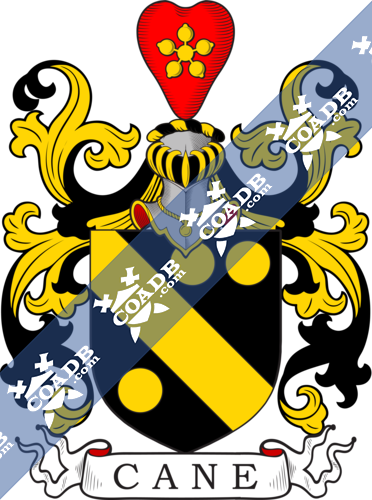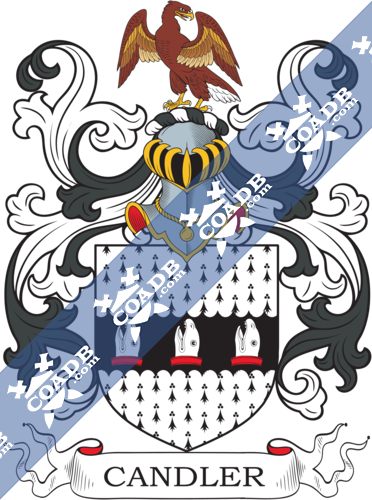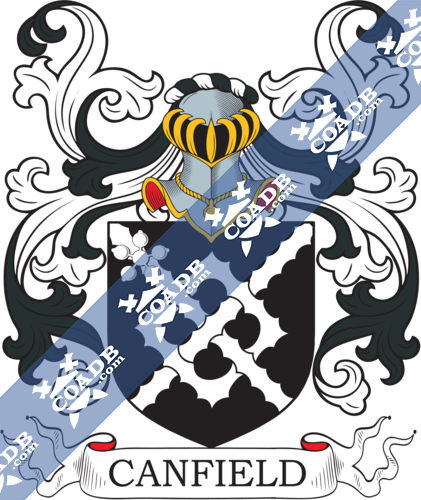Cane Family Crest, Coat of Arms and Name History

Cane Coat of Arms Gallery
Don’t know which Coat of Arms is yours?
We can do a genealogical research. Find out the exact history of your family!
Learn MoreCane Origin:
France, Wales
Origins of Cane:
This interesting and unusual name has two main origins. The first origin of the name is from the Olde French word “Cane,” which means a stick and is a nickname for a tall, thin stick-like person. Possibly, a geographical name for a person who resided in a wet area with sticks or a metonymic professional name for a collector of sticks, widely used in the Middle Ages as a floor covering and for producing small baskets. Similarly, it could be of Celtic origin from the Welsh word “cain” which means handsome. “Keina” is a woman’s name. One Jane Cane married Phillip Watkins in St. Georges Chapel, Mayfair, London in 1747.
Variations:
More common variations are: Caine, Caney, Cayne, Canne, Coane, Cuane, Caneo, Caune, Canea, Canoe.
England:
The origins of the surname Cane found in Derry, where people held a family seat from early times.
The very first recording spelling of the family was shown to be that of Roger de Cane, dated about 1273, in the “Hundred Rolls of Lincolnshire.” It was during the time of King Edward I, who was known to be the “The Hammer of the Scots,” dated 1272-1307. The origin of surnames during this period became a necessity with the introduction of personal taxation.
United States of America:
Individuals with the surname Cane settled in the United States in three different centuries respectively in the 17th, 18th, and 19th. Some of the people with the name Cane who settled in the United States in the 17th century included George Cane, who landed in Virginia in 1622. Patrick Cane, who landed in Virginia in 1637. Margarett Cane, who landed in Virginia in 1643. Edward Cane, who arrived in Maryland in 1648. Thomas Cane, who landed in Maryland in 1649
Some of the people with the surname Cane who settled in the United States in the 18th century included Hugh Cane, who landed in Virginia in 1716. Germain Cane arrived in Louisiana in 1719. Joanis Cane landed in Pennsylvania in 1741. Roger Cane, who landed in Philadelphia, Pennsylvania in 1745. Catherine Cane, who landed in Philadelphia, Pennsylvania in 1746-1747.
The following century saw many more Cane surnames arrive. Some of the people with the name Cane who settled in the United States in the 19th century included Alexander Cane, who landed in America in 1803. Charles Cane, who landed in New London, Conn in 1811. James Cane, who arrived in America in 1811.
Canada:
People with the surname Cane settled in Canada in two different centuries respectively in 18th and 19th Some of the individuals with the name Cane who settled in Canada in the 18th century included Arthur Cane, who arrived in Nova Scotia in 1749. James Cane, who landed in Nova Scotia in 1749-1752.
The following century saw much more Cane surnames come. Some of the people with the surname Cane who settled in Canada in the 19th century included James Cane arrived in Saint John, New Brunswick in 1834 aboard the brig “Ann & Mary” from Cork, Ireland. Henry Cane, who arrived in Victoria, British Columbia in 1862.
Australia:
Some of the people with the surname Cane who settled in Australia in the 19th century included Patrick Cane, was an English prisoner from Middlesex, who shifted aboard the “Andromeda” in November 1832, settling in New South Wales, Australia. Biddy Cane arrived in Adelaide, Australia aboard the ship “Hooghly” in 1846. G. Cane arrived in Adelaide, Australia aboard the ship “Athenian” in 1849. Henry Cane was an English prisoner from Staffordshire, who shifted aboard the “Adelaide” in August 1849, settling in Van Diemen’s Land and Harbor Phillip, Australia.
Here is the population distribution of the last name Cane: Italy 3,740; United States 2,948; Argentina 2,553; England 2,463; Philippines 2,449; Albania 946; Australia 847; South Africa 621; France 563; Canada 464.
Notable People:
Mrs. W. O. Cane was an American leader.
Rudolph C. Cane was an American congressman.
Richard P. Cane was an American leader.
Blazons & Genealogy Notes
Notes: None. Blazon: Sa. a bend or, betw. three bezants. Crest—A human heart gu. eharged with a cinquefoil or.







